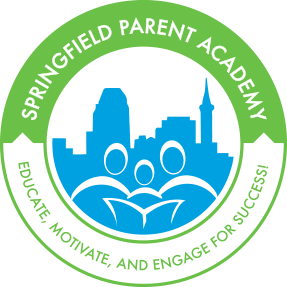Everyone wants their child to be a success. One of the first places a child can succeed is school.
In school, kids learn to read. Learning to read is a big deal! If you can read, you can learn anything!
But we have a crisis in Springfield. Sixty percent of our kids aren’t reading proficiently by 4th grade. And 4th grade matters! In 4th grade, you get real textbooks and you read to learn new things. It’s a big step!
The reason so many children fail to read proficiently by 4th grade is not because they have not learned to sound out words. They can sound out the words. The problem is that they have never heard or don’t use those words and therefore do not know what they mean.
If you have to sound out too many words you don’t understand, you do not get a mental picture of what is happening. If you don’t get a picture in your head, you will not know what is going on in the book. If you don’t know what is going on, you will be bored and frustrated and you will not continue reading. It is that simple.
Children need adults to give them the words, before they try to read them themselves.
Where do adults get these words?
Books! We have approximately 176,000 volumes in the children’s collections in the Springfield City Library system. They are all available for your use, free of charge!
Books contain words that we tend not to say to each other but that children are going to need to read and understand. (When was the last time you said “perched” to refer to the way your reading glasses sit on your nose?)
If you read to your child for at least twenty minutes a day, every day, you will be putting those words in her ear. That is all you need to do.
Children start collecting words at birth. They learn them through repetition. Research consistently shows children who start school with the largest vocabularies have the easiest time learning to read.
It also shows that, unchecked, the socioeconomic gap that occurs by age three can be so huge as to be insurmountable. You cannot wait until your child starts preschool to start building vocabulary.
Good news! Regardless of race or class, children who are read to daily, from birth and continuing after they can read on their own, are the most successful readers. Research shows that daily reading overcomes economic disadvantage.
Successful readers stay in school. Half of Springfield’s children do not finish high school in four years.
What are your plans for your child?
Haven’t been reading to your child? It’s never too late to start! Every day you read to your child helps.
Need help? Springfield has a lot going on to support early literacy! Check out Reading Success by 4th Grade for some ideas — or ask your librarian!
Free classes on a wide-range of parenting topics, including early literacy, are offered by the Springfield Parent Academy.
Interested in going deeper?
Too Small to Fail
Too Small to Fail is a joint initiative of the Clinton Foundation and Next Generation. Their goal is to help parents and businesses take action in ways that will contribute to the success of all children.
Zero to Three: National Center for Infants, Toddlers, and Families
Zero to Three is a national organization that provides information about children’s development.
Citation list :
- At a Loss for Words: How America is Failing Our Children and What We Can Do About It by Betty Bardige
- Meaningful Differences in the Everyday Experience of Young American Children by Betty Hart, Ph.D. and Todd R. Risley, Ph.D
- The Read-Aloud Handbook by Jim Trelease (This is a very parent-friendly read!)
- Reading Success By 4th Grade
